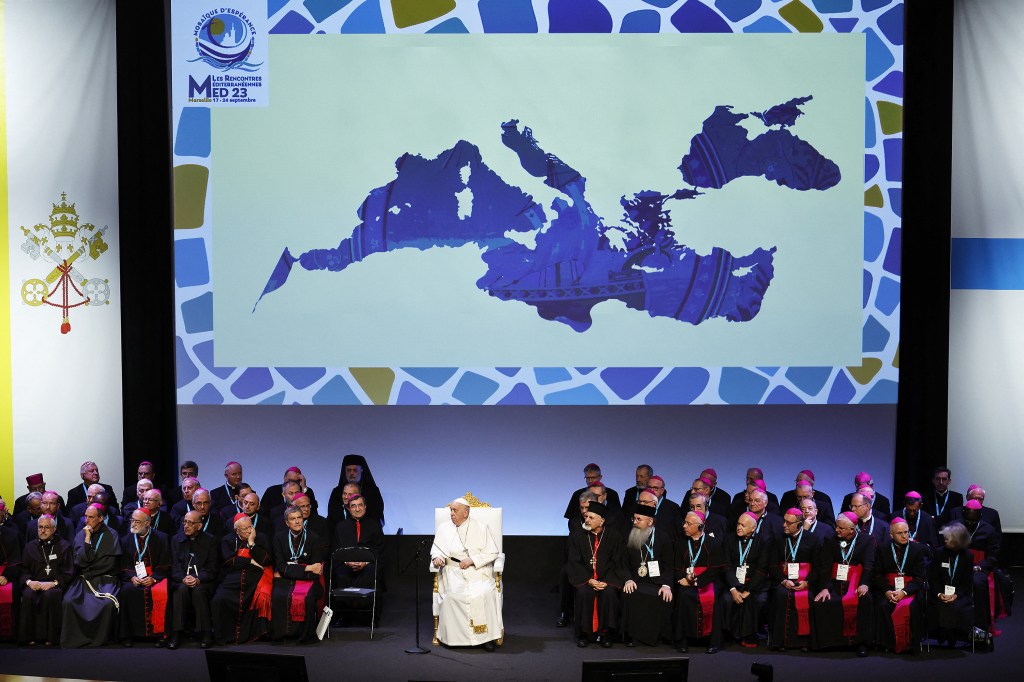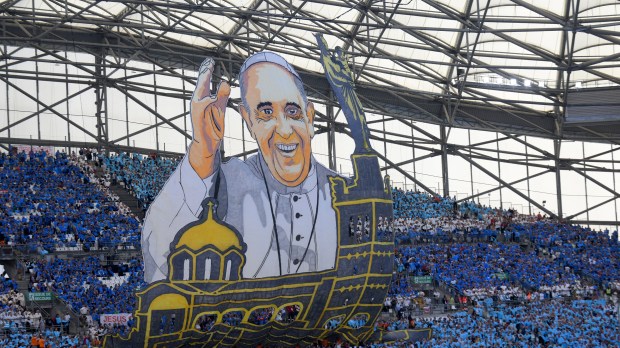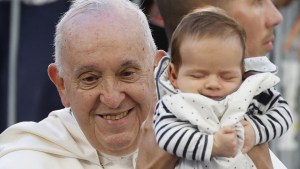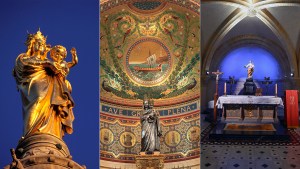From September 22 to 23, 2023, Pope Francis visited the southern French city of Marseille to attend the third edition of the Mediterranean Encounters, a meeting gathering young people, bishops, and other Catholic and religious leaders to discuss the issues facing this region today. In his speech at the final session of the Encounters, he called for the integration of migrants and attention to the most marginalized, saying that the Mediterranean can be a “laboratory for peace” as the situations it faces “mirrors” many other regions in the world.
“Our sea, at the crossroads of North and South, East and West, brings together the challenges of the whole world,” the Pope stated. “It is an outpost of challenges that concern everyone.”
Although this trip to Marseille lasted only 27 hours, Pope Francis focused his attention greatly on those most marginalized by society. He blessed a memorial dedicated to migrants and sailors lost at sea, he visited one of France’s poorest districts, and made appeals against euthanasia. His 35-minute speech for the conclusion of the Mediterranean Encounters at the Palace of the Pharo, was no exception. In front of bishops from across the region and the French President Emmanuel Macron, the Pontiff made a strong appeal for peace and hospitality.

From Marseilles and the Mediterranean to the world
From Marseille, Pope Francis proposed a plan to make the Mediterranean “a laboratory of peace” for the whole world. While recognizing the conflicts and issues that the Mediterranean faces, the Pope highlighted that this region is a “cradle of civilization, a sea overflowing with treasures,” which can offer a “global vocation to fraternity.”
“The Mediterranean mirrors the world, with the South turning to the North, with many developing countries, plagued by instability, regimes, wars and desertification, looking to those that are well-off, in a globalized world in which we are all connected, but one in which the disparities have never been so wide,” the Pope assessed.
“Where should we begin, then, in order for peace to take root?” asked the head of the Catholic Church, who for the past 10 years has been traveling to every shore of the Mediterranean to preach in favor of fraternity.
People are faces, not numbers
“Jesus began by giving hope to the poor and proclaiming them blessed,” the Pope responded, saying that we need to primarily focus on “the often silent cry of the least among us.”
“Let us, the Church and civil society, start anew by listening to the poor who should be embraced, not counted, for they are faces, not numbers. The change of direction in our communities lies in treating them as brothers and sisters whose stories we know, not as troublesome problems or chasing them away, sending them home; it lies in welcoming them, not hiding them; in integrating them, not evicting them; in giving them dignity,” the Pope stated.
He continued by explaining that “real social evil is not so much the increase of problems, but the decrease of care.” He then listed many categories of people concerned: “young people left to themselves” or “frightened families, afraid of the future and of bringing children into the world.”
Here, he included the elderly at risk of being euthanized and the unborn.
“Who listens to the groaning of our isolated elderly brothers and sisters, who, instead of being appreciated, are pushed aside, under the false pretenses of a supposedly dignified and ‘sweet’ death that is more ‘salty’ than the waters of the sea? Who thinks of the unborn children, rejected in the name of a false right to progress, which is instead a retreat into the selfish needs of the individual?” the Pope asked, as France, like many other Western countries, is debating new laws surrounding assisted-dying.
“The stifled cry of migrant brothers and sisters”
However, the issue that Pope Francis dedicated the most attention to in his speech was migration, as this is the primarily challenge that brought his audience together: “There is a cry of pain that resonates most of all, and it is turning the Mediterranean, the mare nostrum (“Our sea”), from the cradle of civilization into the mare mortuum (“Dead sea”), the graveyard of dignity: It is the stifled cry of migrant brothers and sisters.”
The Pontiff lamented that the words “invasion” and “emergency” resound in people’s minds when they think of the migration crisis. “Yet those who risk their lives at sea do not invade, they look for welcome, they are looking for life. As for the emergency, the phenomenon of migration is not so much a short-term urgency, always good for fueling alarmist propaganda, but a reality of our times,” the Pope explained, highlighting also the his predecessors before him have warned about disparities and inequalities “for more than fifty years.”
The Church is not a customs house
Pope Francis also acknowledged the difficulties involved in “offering welcome.” However, he insisted that “migrants must be welcomed, protected or accompanied, promoted and integrated. If this does not take place then migrants end up on the margins of society. Welcomed, accompanied, promoted and integrated: this is the style.”
“The principal criterion cannot be the preservation of one’s own well-being, but rather the safeguarding of human dignity,” he said, calling also for government authorities to do the most to ensure safe and legal arrivals. “History is challenging us to make a leap of conscience in order to prevent the shipwreck of civilization.”
“Integration of migrants is a tiring effort but farsighted; an assimilation that does not take into account differences and remains rigidly fixed in its own paradigms only makes ideas prevail over reality and jeopardizes the future, increasing distances and provoking ghettoization,” the Pope said. “We need fraternity as much as we need bread.”
“May the Church not be a list of regulations but a port of hope for those who have lost their confidence. Please, open wide your hearts! May the Church be a port of refreshment, where people feel encouraged to embark upon life with the incomparable strength born of Christian joy. May the Church not be a customs house.”
Hope for the future
For this project of peace, Pope Francis emphasized the role young people and the Church can play. He said dioceses “that are most exposed can provide the best spiritual and human assistance” to migrants that arrive. He also suggested that a Mediterranean episcopal conference could be a possibility to consider for the future.
Young people instead “are the light that indicates the way of the future” and university settings are especially conducive to dismantling “prejudices,” healing wounds, and rejecting “fundamentalist rhetoric.”
He also cited St. Charles de Foucauld, who had a “scandalously evangelical style of life” as an example to follow.
“We are not called to grieve over times past, or to redefine the Church’s role in society; we are called to bear witness, not to embroider the Gospel with words, but to give it flesh; not to worry about our visibility but to spend ourselves in utter gratuity, believing that the measure of Jesus is love without measure,” the Pope said.



